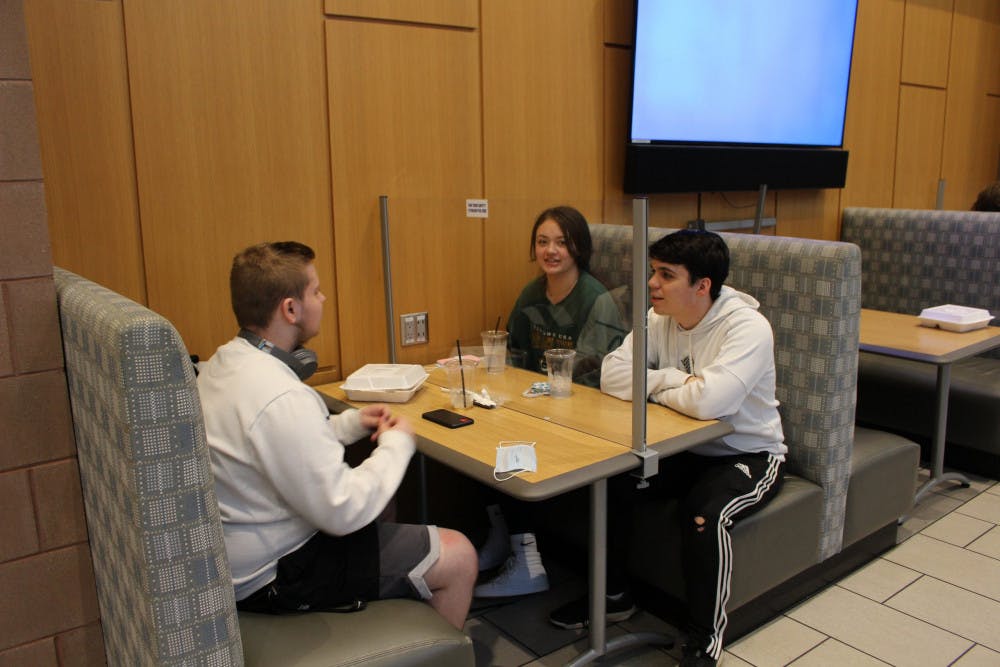The Seton Hall cafeteria has undergone a complete transformation this semester as part of the University’s efforts to make the dining hall safe during the coronavirus pandemic.
The Office of Business Affairs detailed the protocols that Seton Hall and Gourmet Dining Services would carry out for the Fall semester in an email to students. The new guidelines followed the creation of a task force last spring whose goal was to create a safe dining experience for students and faculty.
The latest safety measures include the introduction of a mobile ordering platform and grazing stations. Other new safety measures include plexiglass barriers between tables, hand sanitizer stations, no self-service areas, six-foot markers and a mandatory mask requirement for students.
Jonathan Quinn, a senior marketing major, said the school “kind of went all out” to prevent the spread of COVID-19 in the cafeteria.
“Not only is every seat available distanced from each other, but also the chairs in the Atrium are all separated by large plastic dividers,” Quinn said. “It just kind of sucks having to shout at people to be heard because it’s really hard to speak at a normal volume when there’s giant plastic walls separating you.”
The mobile ordering application allows students to choose in advance what they would like from the grill, wok, pasta, rotisserie or entrée stations.
“I think the school has done a good job in the cafeteria by adding the option to mobile order your food and shutting down self-serve food stations and drink stations,” Alyssa Giarrusso, a senior social work major, said.
Quinn said he likes the mobile application due to its convenience and hopes it will stay post-COVID.
The email also listed the grazing stations which include the bakery, vegan, pizza, salad, cold deli, “Tex-Mex,” ice cream, beverages and the “Grillin’ All Day” stations.
Students have mixed reviews about the quality of the food this semester. Quinn said the food has gotten worse at Seton Hall this semester compared with previous years.
“Before you could make your own food, therefore saving you from having to eat anything that’s made there,” Quinn said. “The food has a tendency to be undercooked, and generally just tastes bad. There’s literally only one or two things you can get that will taste good and not potentially get you sick.”
Dia Bolton, a junior diplomacy major, said she believes the cafeteria has lowered its standards.
“There aren’t many open food options besides the salad bar,” Bolton said. “There are barely any fruits or vegetables that are presented, and some of the ones we do have are rotting.”
Quincy Slay, a sophomore pre-business major, said the food has gotten better, as Gourmet Dining Services has introduced new foods and the taste is “not as salty as before.”
Giarrusso said she considered the quality to be the same and has not tried anything new this semester.
Quinn said he is more concerned with getting sick from the food than from COVID-19. He said he feels “relatively safe” from COVID-19 in the cafeteria.
Gourmet Dining Services continues to utilize its “Chatback” platform to allow students and faculty to send feedback on day-to-day operations to its managers.
Bianca Stover can be reached at bianca.stover@student.shu.edu.





